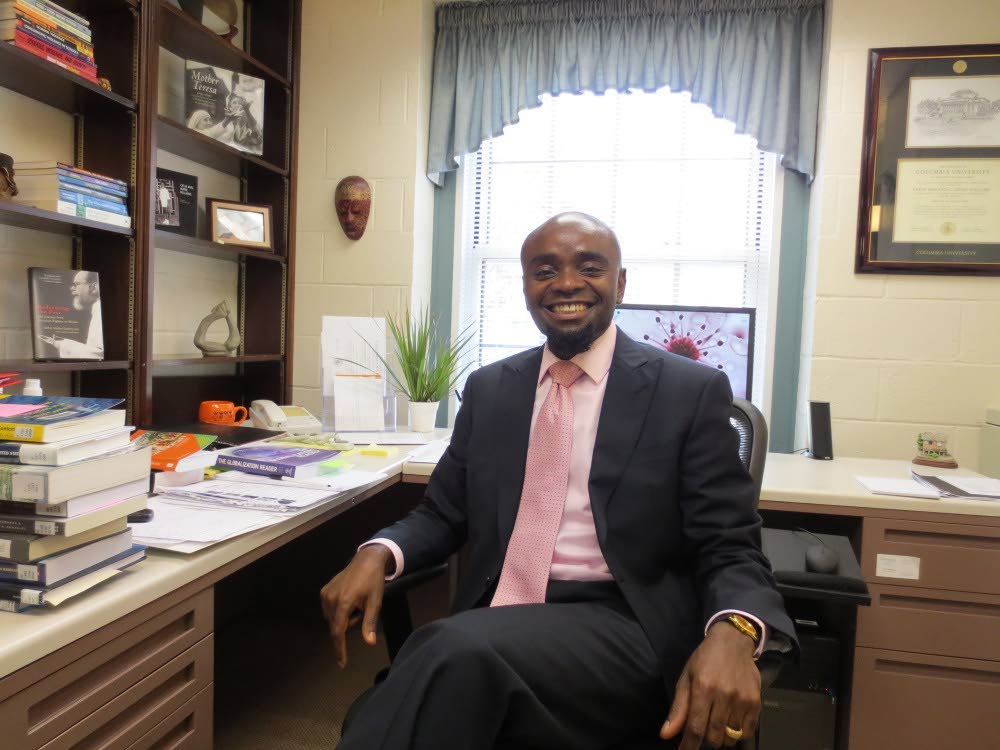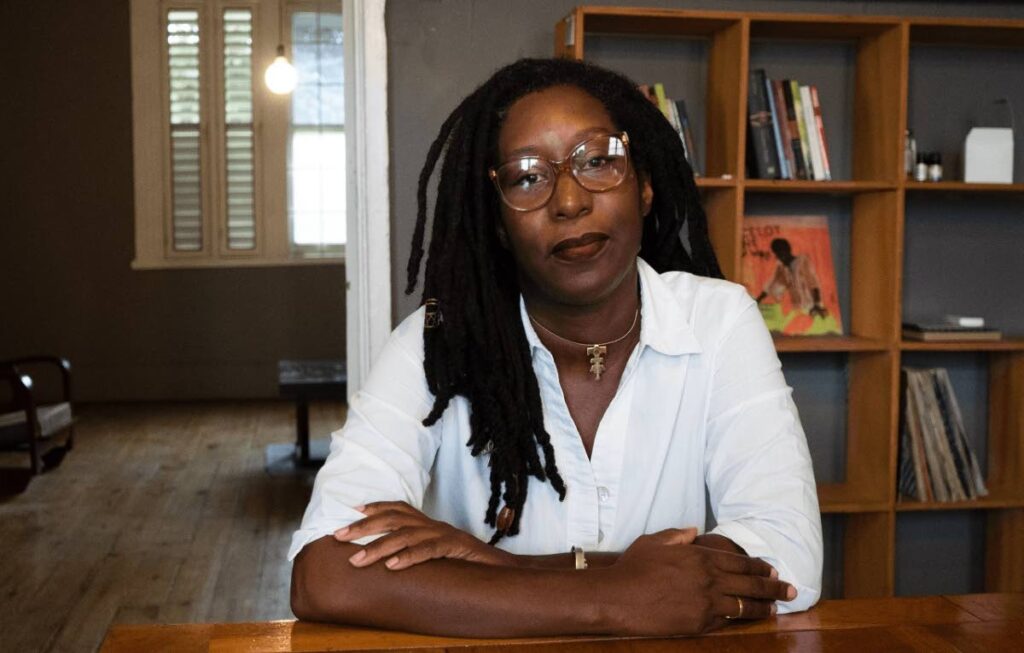Peace must be fought for: International conference being held in Trinidad and Tobago

MELISSA DOUGHTY
Peace must be fought for, said Dr Hakim Mohandas Amani Williams, the TT-born, US-based co-chair of the International Peace Research Association’s (IPRA) conference planning committee.
The organisation is hosting its bi-annual general conference for the first time in TT, It began yesterday and ends May 21 with many of its events taking place at Hilton Trinidad and Conference Centre, Lady Young Road, Port of Spain.
The opening ceremony took place on May 17 with a smoke ceremony led by Chief of the Santa Rosa First Peoples Community Ricardo Bharath Hernandez and a keynote address from Planning and Development Minister Pennelope Beckles. For the duration of the conference there will be panel discussions and workshops on topics such as Designing for Peace, Bringing Human Values to Education, and Training for Peace.
There is also going to be movie screenings, reiki offerings, an international cultural celebration at Rootsyard at Oasis at Western Main Road, St James, an art exhbition and an event called Steel Pan, Community and Healing Through Music at BP Renegades Panyard, Charlotte Street, Port of Spain.
In an interview on May 16, some of the conferences organisers/presenters such as Williams, the IPRA’s co-secretary general, author and historian Matt Meyer, activist/writer Attillah Springer and PhD candidate in Knowledge and Culture in Latin America Diana Marcela Agudelo spoke to global peace and peace in TT and the region.

The discussion began with the interviewees giving a definition of peace.
The IPRA was established in 1964 as a non-profit international scientific association of peace researchers and educators.
It’s website says, “We seek to answer – the contours of conflict and its prevention, the successes and failures of building justice-based societies, the role of resistance in fighting oppression, war, and all its causes –we have no time left to avoid the hard work ahead.”
Agudelo said peace meant a search for dignity and transformative practices in people’s, organisations and governments everyday lives.
She said people often thought of peace as the absence of conflict and the cessation of war and living happily forever.
“It is not about that. It is about what we want to do with our lives and that involves not only people but also the dynamics in the territories, the global ecosystem, the way we think about nurturing, food and love,” she said.
As for answers on how the world could achieve peace, Agudelo said the problems had long been identified and it was now time to start thinking about what could be done together.
“How can we live differently?” she said.
Williams said peace was a process and ongoing. He said this was why the conference's theme is Rooted Futures: Vision of Peace and Justice and looked at the role history played in the peace process.
“If we are going to envision a more just and sustainable future we have to go back into the past and remember and recognise the many beauteous things that worked well while also merging that with new visions on how to exist,” he said.
Williams said technological advancement was rearranging the world in ways that did not exist 100 years ago and this required new relating but could not be devoid of historical wisdoms.
He said peace is a pull and tug and people actually had to fight for peace, addressing questions about changing, global, political structures such as the formation of BRICS (Brazil, Russia, India, China and South Africa).
“It is just not going to be emergent from nowhere,” he said.
He said “micro-revolutions” were happening in communities all over the world and centered on the individuals taking the smaller steps toward peace in their own lives.
Meyer said history showed that questions about peace and achieving peace were not done in a linear fashion but rather by looking into what happened before.
Springer said the conference was necessary and needed at a time when Trinidadians were in a state of despair, were confused and looking for answers.
“Conferences don’t necessarily give answers but there is going to be a lot of storytelling going on, a lot of experiences being shared,” she said.
She said people were concerned about the country.
“We all need to be invested in doing this work and it is a pleasure to be a part of this experience and organising,” Springer said.
Many families in TT were affected by the things being discussed in the conference, she said.
“We are all in some ways secondary victims to what is going on in our society. So how do we band together as a society and work through those things?”
Springer added many people were affected by generational trauma.
“We have denial of our indigenousness, we have denial of our Africanness, we have people questioning the right of Hindus to do their rituals. We have all of this going on in our society. When we came here we found a way to live together and because of systemic programming and violence we have internalised that violence and act it out on each other.
“We have to find ways to stop doing that. That is why we are starting with a smoke ceremony which is supported by the elders of African community and the elders of the Indian community.”
She said conversations about peace and violence were happening among the nation’s youth through platforms like Trinibad music.

Comments
"Peace must be fought for: International conference being held in Trinidad and Tobago"